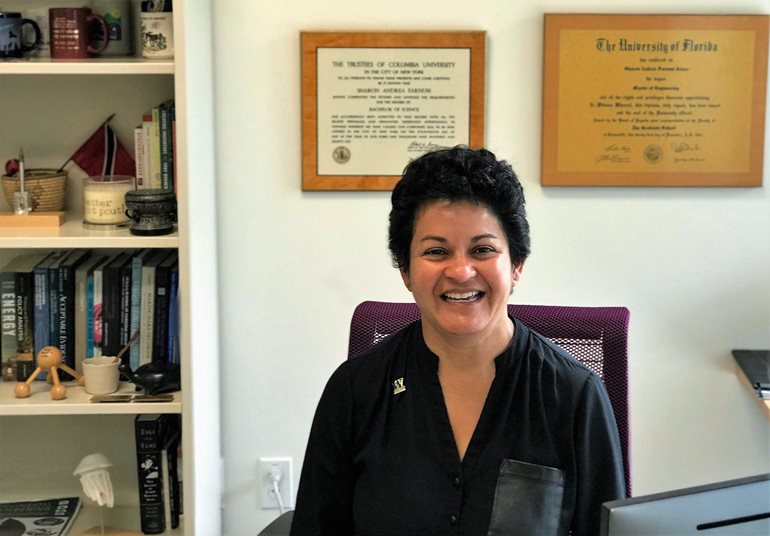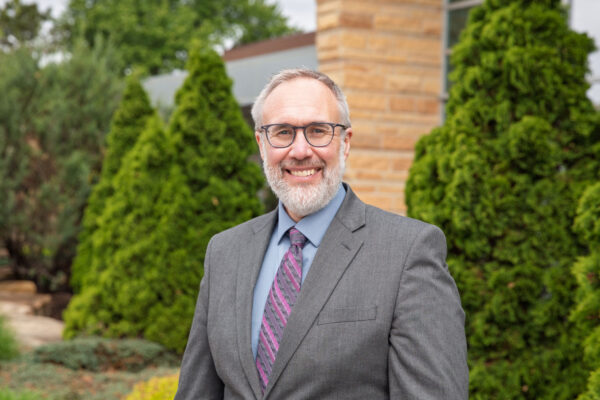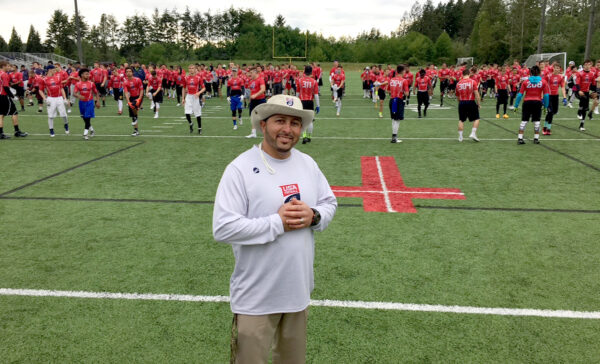
By Douglas Esser
Sometimes, someone on the sidewalk looking for the Beardslee Public House sees Sharon A. Jones in her office and knocks on the window. “Where’s the pub?” they ask. “Upstairs,” she says, directing them up and around to the entrance.
Except for the occasional interruption from people looking for a beer and burger, Jones is comfortable giving direction. Leadership is her job as the new vice chancellor for academic affairs (VCAA) at the University of Washington Bothell.
The position is responsible for leading programs for pre-major students and all five schools at UW Bothell: Business; Educational Studies; Interdisciplinary Arts & Sciences; Nursing & Health Studies; and Science, Technology, Engineering & Mathematics. She also oversees a wide variety student-success programs.
“My job is to support those deans in terms of their goals. It’s also to help all of us in academic affairs move toward the same direction in terms of the campus mission and vision,” Jones said.
The pause that refreshes
The mission — to provide access and opportunity for a diverse range of students in an interdisciplinary, student-centered environment — is what attracted Jones to UW Bothell from the University of Portland. She had been dean of its engineering school for eight years.
This summer, Jones succeeded interim VCAA Anita Krug and moved into that office in the Beardslee Crossing development. It’s in space the university leased in 2015 as rapid growth filled the UW Bothell campus about a half-mile away.
Dealing with the aftereffects of that growth spurt is one of the main concerns for Jones. In 2017, Chancellor Wolf Yeigh announced a pause in overall enrollment growth and in 2018 charged the campus to begin developing a new strategic plan.
“What I heard loud and clear from the chancellor is that this is the time for us to improve — improve everything we do on campus — improving quality and advancing excellence whether it’s for faculty, for staff, for students, for facilities,” Jones said. “That’s the nice opportunity that a pause offers.”
Challenges ahead
The pause also is a time to prepare for enrollment and budget challenges that already have hit other colleges across the country, Jones said.
“I think higher ed is going to face some important changes, some significant changes in the near future,” she said. “It’s in large part because of the cost that students have to bear. At some point, it becomes unmanageable for families.”
By setting priorities and improving efficiency, UW Bothell can strengthen its financial foundation and go beyond surviving to thriving, Jones said.
“I think Bothell has a huge advantage because it sits in a high-demand area, especially for the types of majors that we offer,” said Jones, referring to the interdisciplinary emphasis across all the schools. “I think our students are really well prepared for the types of jobs that are out there.”
The best Mardi Gras
Bothell is the latest stop on a journey that began in Trinidad where Jones was born. The island off the coast of Venezuela has a diverse population: descendants of European colonists, African slaves and indentured servants from China, Portugal and India.
The cosmopolitan mix affects food and culture, Jones said. Trinidad is where steel drums were invented from oil barrels. “We have a much better Mardi Gras than New Orleans,” she added.
Her mother was able to go to school only until the age of 12. Her father was the only child in a large family to go to high school. But they both valued education.
“Our lives changed completely because he was able to go to high school, and he was insistent that his kids were going to go to college,” Jones said. “I was the first one.”
Her parents wanted Jones to become a doctor or lawyer, but after visiting relatives in New York City as a child and seeing the tall buildings, she wanted to become an engineer — although she was advised that was a job for boys.
Jones received a degree in civil engineering from Columbia University. Her younger sister and brother also went to college.
Higher and higher education
Jones worked as an engineer before deciding to enter academia.
“You could be a role model for people who look like you,” she told herself. “I didn’t have many role models who looked like me when I was going through engineering school.”
After receiving a doctorate from Carnegie Mellon University in Pittsburgh in engineering and public policy, Jones served as a professor at Rose-Hulman Institute of Technology in Terre Haute, Indiana, and director of engineering at Lafayette College in Easton, Pennsylvania, then moved to the University of Portland.
“That’s a benefit of a good education; you can move around quite a bit.”
Like her parents, Jones and her husband have high expectations for their children. All three sons have graduated from college, Jones said. One is a data engineer in the health care field. Another has enrolled in a nurse practitioner program, and the youngest is starting an interdisciplinary graduate program.
Engineering a university
Jones still brings the engineer’s mindset to her work as an administrator.
“The design-thinking approach — identifying the problem that you’re trying to solve, getting stakeholder feedback, evaluating alternatives, being more data-driven — probably affects the way I approach things,” Jones said. “It also goes to strengthening the foundation on which the campus is built — the culture and the core values that are important to the campus.”


